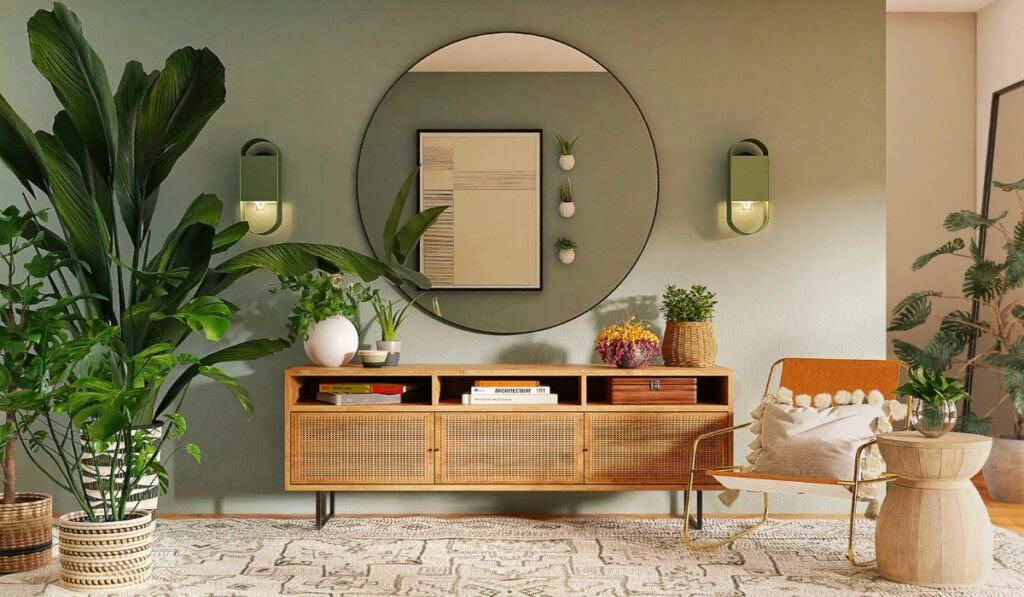Elevating Interior Design: The Rise of Eco-Conscious Living

Elevating Interior Design: The Rise of Eco-Conscious Living
This paradigm shift is reshaping the realm of home furnishing, ushering in a new era where style and sustainability coexist harmoniously.
23rd May 2024
In today’s rapidly evolving world, interior design is undergoing a profound transformation, as homeowners increasingly prioritise eco-conscious living without sacrificing luxury. This paradigm shift is reshaping the realm of home furnishing, ushering in a new era where style and sustainability coexist harmoniously.
Balancing Luxury with Sustainability
In the pursuit of creating luxurious yet environmentally responsible living spaces, homeowners are seeking a delicate balance. Smriti Choudhary, Brand Director at Cocoon Fine Rugs, advocates for the use of natural fibres such as pure silk and wool in rug crafting. These materials not only ensure longevity but also align with conscious living principles. Choudhary cautions against fibres like bamboo and banana silk, which tend to degrade over time, and instead recommends PET yarns made from recycled PET bottles for their durability and outdoor suitability.
Innovative Materials for Sustainable Home Furnishing
The shift towards sustainability extends beyond material choice to embrace innovative design techniques. Manufacturers are exploring new avenues for sustainable home furnishing, experimenting with patterns, textures and colours to create visually stunning yet eco-friendly pieces.
The use of alternative materials, such as reclaimed wood, bamboo, recycled plastics and organic fabrics, to create stylish and functional furniture and decor items is being advocated. Mono materials, where both the face and backing of carpets consist of the same material, are gaining popularity for their enhanced recyclability and reduced environmental footprint.
Design Techniques for Eco-Conscious Living
Anushka Ahuja, Co-Founder of Studio by Agni, underscores the importance of adopting eco-friendly processes to minimise waste and environmental impact. Manufacturers are increasingly recycling and reusing materials such as yarn dyes, water, yarn residues, cardboard cones and pallets to significantly reduce wastage.
Additionally, incorporating reclaimed wood, bamboo, recycled plastics and organic fabrics for furniture and decor items promotes sustainability while adding a touch of rustic charm to living spaces.
Manufacturing Processes: Minimising Waste, Maximising Sustainability
By incorporating both eco-friendly materials and manufacturing processes, the home furnishing industry is redefining modern living. Stylish and functional solutions are emerging that not only elevate aesthetics but also contribute to a greener, more sustainable future. Manufacturers are embracing eco-friendly practices, such as utilising renewable energy sources and implementing waste reduction measures, to minimise their environmental footprint and create a positive impact on the planet.
The Impact on Modern Living Spaces
As eco-conscious living takes centre stage in interior design, modern living spaces are undergoing a profound transformation. Homeowners are embracing sustainable design principles, opting for furniture and decor items crafted from eco-friendly materials and manufactured using environmentally responsible processes. The result is a harmonious blend of luxury, style and sustainability that not only enhances the ambiance of living spaces but also reflects a commitment to creating a healthier planet for future generations.
Designers as well as customers are embracing the concept of “biophilic design,” which seeks to reconnect people with nature through the use of natural materials, greenery and natural light. By prioritising sustainability and conscious living, interior design has the power to not only enhance the beauty of our living spaces but also contribute to a healthier and more sustainable planet.










